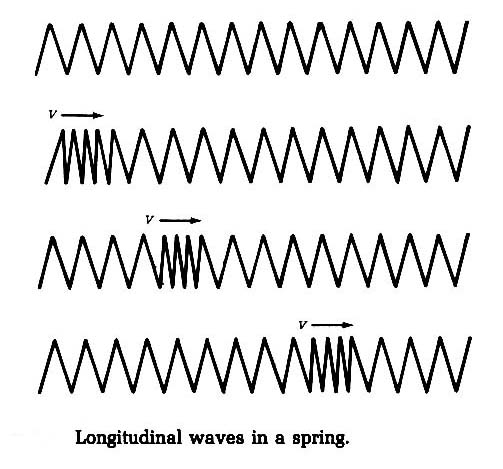
Page 2: Wave Motion
Transverse waves are waves where the direction of the medium's movement is at right angles to the wave's direction of travel. When the direction of the medium's movement is in the same or opposite direction as the wave's direction, the waves are called longitudinal or compression waves.

image taken from source#2
Longitudinal waves are best demonstrated by compression in a spring.

image taken from source#1
Transverse waves are the waves that are seen moving in an "up-down" direction like the waves that we see in water.

image taken from source #1, page 13
Simple harmonic motion can be demonstrated by masses suspended by springs. The mass m is pulled down a distance x, so the forces are kx when k is a spring constant. When harmonic waves are at the lowest point (trough), the motion pulls in the opposite (up) direction; and when harmonic waves are at the highest point (crest), the motion pulls in the opposite (down) direction.
Page 7: The Way We Perceive Sounds